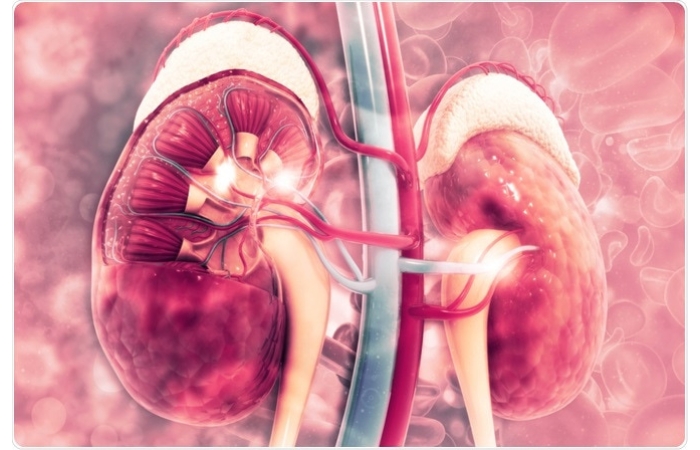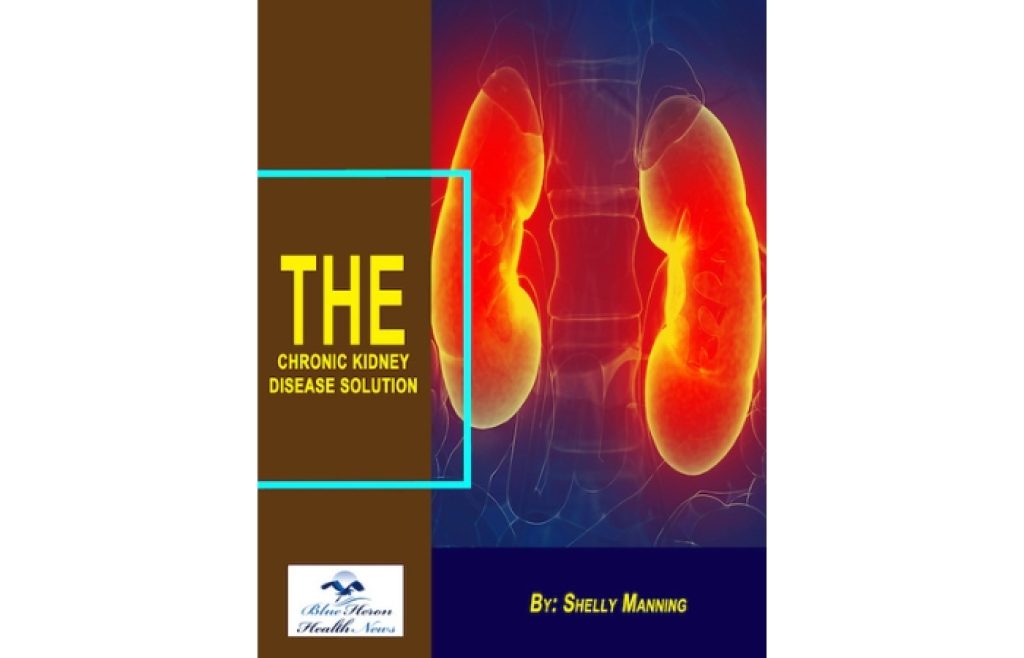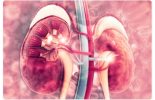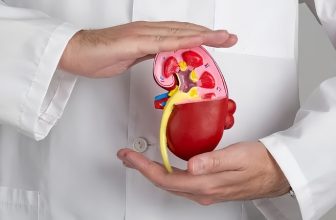“The Chronic Kidney Disease Solution: Understanding Causes, Lifestyle Changes, and Healing Pathways”

Chronic kidney disease (CKD) is a progressive condition that affects millions worldwide. It significantly impacts one’s quality of life, creating a cycle of treatments, doctor visits, and medication management that can be exhausting both physically and mentally. To truly understand CKD and its management, it’s essential to explore the root causes, the available medical and alternative treatment options, and the profound role lifestyle plays in influencing disease progression. In this in-depth exploration, we’ll discuss how CKD is caused, the potential of holistic approaches, and the pivotal role of gut health in managing this chronic disease.
Understanding Chronic Kidney Disease
CKD develops gradually over time, often going unnoticed until it has progressed to a more serious stage. It involves a gradual reduction in kidney function, with the kidneys losing their ability to filter waste and excess fluids from the blood effectively. As CKD progresses, it passes through five stages, with Stage 1 being the mildest and Stage 5 being the most severe, often requiring dialysis or a kidney transplant.
The difficulty in treating CKD lies in its complex causes. The condition is typically secondary to other health issues, such as diabetes, hypertension, cardiovascular disease, or obesity. The challenge in managing CKD is not only treating the disease itself but also addressing these underlying conditions. Many patients find themselves overwhelmed by medication regimens that target both CKD and its comorbidities. Moreover, a reduced glomerular filtration rate (GFR) complicates medication dosing, increasing the risk of toxicity and adverse drug interactions.

Despite these challenges, there is hope. Recent insights into CKD management have shifted focus toward holistic approaches, particularly addressing lifestyle factors that contribute to kidney health. For many, this has proven to be life-changing, offering a path away from dialysis machines and toward improved quality of life.
The Role of Lifestyle in CKD Management
Traditionally, CKD management has focused on controlling symptoms and slowing disease progression through medication. However, there is growing recognition that lifestyle changes can significantly impact kidney health, especially when made early in the disease process. This realization has given rise to programs like Shelly Manning’s “The Chronic Kidney Disease Solution,” which emphasizes lifestyle adjustments as a primary means of managing and even reversing CKD symptoms.
Lifestyle factors that influence CKD include diet, stress levels, sleep quality, and physical activity. These elements play a critical role in maintaining overall health and, specifically, in regulating the body’s inflammatory response. Inflammation is a key contributor to CKD progression, often triggered by a malfunctioning immune system. Addressing these lifestyle factors can reduce inflammation, improve kidney function, and enhance overall well-being.
Stress, Sleep, and Fitness
Stress is a major factor that negatively affects kidney health. Chronic stress leads to elevated blood pressure and increased production of stress hormones, both of which can damage the kidneys over time. Stress management techniques such as meditation, yoga, and mindfulness have been shown to reduce blood pressure and improve overall kidney health.
Sleep quality is another crucial component. Poor sleep has been linked to increased inflammation and impaired immune function, both of which contribute to CKD progression. Establishing a regular sleep routine, creating a comfortable sleep environment, and avoiding stimulants before bedtime can help improve sleep quality and, in turn, kidney health.

Physical activity is equally important. Exercise helps regulate blood pressure, control weight, and improve cardiovascular health—all of which are beneficial for kidney function. While individuals with CKD may need to avoid strenuous activities, moderate exercise such as walking, swimming, or cycling can be highly beneficial.
The Gut-Kidney Connection
One of the most groundbreaking discoveries in recent years is the connection between gut health and kidney function. The gut, often referred to as the body’s “second brain,” plays a vital role in overall health. It houses trillions of bacteria, collectively known as the microbiome, which are essential for various bodily functions, including immune regulation, nutrient absorption, and toxin elimination.
Research has shown that an imbalance in the gut microbiome, known as dysbiosis, can contribute to systemic inflammation—a key factor in the development and progression of CKD. A malfunctioning immune system, often triggered by poor gut health, leads to ongoing inflammation, which can then cause or exacerbate conditions such as hypertension, diabetes, and ultimately CKD.
Improving gut health can, therefore, have a profound impact on kidney function. Diet plays a central role in maintaining a healthy gut microbiome. Consuming a diet rich in fiber, probiotics, and prebiotics can promote the growth of beneficial bacteria, reduce inflammation, and support kidney health. Foods such as leafy greens, whole grains, berries, and fermented foods like yogurt and sauerkraut are excellent choices for supporting gut health.
Dietary Changes for CKD Management
Diet is perhaps the most powerful tool available for managing CKD. The right dietary changes can help restore kidney function, reduce inflammation, and improve overall health. Shelly Manning’s approach emphasizes a diet that is not about restriction but about making informed choices that nourish the body and support kidney health.
A kidney-friendly diet typically focuses on reducing the intake of sodium, phosphorus, and potassium, as these minerals can build up in the blood when kidney function is impaired. However, it’s equally important to ensure that the diet is rich in nutrients that support overall health and specifically target inflammation and gut health.

- Hydration: Staying well-hydrated is crucial for kidney health, as it helps the kidneys filter waste and maintain electrolyte balance. However, for individuals with advanced CKD, fluid intake may need to be carefully monitored to avoid fluid overload.
- Protein Intake: While protein is essential for overall health, excessive protein can strain the kidneys. A balanced approach is needed, with an emphasis on high-quality protein sources such as fish, poultry, and plant-based proteins like legumes and tofu.
- Healthy Fats: Incorporating healthy fats, such as those found in olive oil, avocados, and nuts, can help reduce inflammation and support cardiovascular health, which is closely linked to kidney function.
- Anti-Inflammatory Foods: Foods rich in antioxidants and anti-inflammatory compounds, such as berries, leafy greens, and fatty fish, can help reduce systemic inflammation and support kidney health.
The Three-Phase Approach to Reversing CKD
Shelly Manning’s program is structured into three phases, each designed to address different aspects of CKD and promote healing:

- Phase 1: Protect from Kidney DamageThe first phase focuses on stopping further damage to the kidneys. This involves making immediate changes to daily habits that contribute to kidney stress, such as reducing sodium intake, managing blood pressure, and addressing gut health. Simple dietary changes and stress management techniques are introduced to create a foundation for healing.
- Phase 2: Restore Kidney FunctionIn the second phase, the focus shifts to restoring kidney function. This involves stabilizing blood sugar levels, improving gut health, and incorporating specific foods and supplements that support kidney repair. Many individuals begin to notice improvements in energy levels, mental clarity, and overall well-being during this phase.
- Phase 3: Repair and Renew Kidney TissueThe final phase is about deep healing. By this stage, blood pressure and blood sugar levels are typically stabilized, and kidney function has improved. The focus is on repairing and renewing kidney tissue using natural supplements and nutrient-dense foods. This phase also emphasizes long-term lifestyle habits that ensure sustained health and prevent future kidney damage.
The Power of Natural Supplements
In addition to dietary changes, natural supplements can play a crucial role in supporting kidney health and overall well-being. Shelly Manning’s program recommends several affordable supplements that can be found at local health stores or supermarkets. These include:
- Probiotics: To support gut health and promote a balanced microbiome.
- Omega-3 Fatty Acids: Found in fish oil, omega-3s have powerful anti-inflammatory properties that can help reduce kidney inflammation.
- Vitamin D: Many individuals with CKD have low levels of vitamin D, which is essential for bone health and immune function.
- Herbal Remedies: Herbs such as turmeric, ginger, and dandelion root have been used for centuries to support kidney health and reduce inflammation.
The Emotional Impact of CKD
Living with CKD can take a significant emotional toll. The prospect of dialysis, the uncertainty of disease progression, and the impact on daily life can lead to anxiety, depression, and a sense of hopelessness. Addressing the emotional aspects of CKD is an important part of the healing process. Support groups, counseling, and stress-reducing activities such as yoga and meditation can help individuals cope with the emotional challenges of CKD.

Shelly Manning’s approach emphasizes the importance of mental and emotional well-being in the healing process. By taking control of one’s health through lifestyle changes and natural remedies, many individuals experience a renewed sense of hope and empowerment. This positive mindset can be a powerful tool in the journey toward better health.
Conclusion: A Path to Healing
Chronic kidney disease is a complex condition, but it is not a life sentence. While conventional treatments focus on managing symptoms and slowing disease progression, a holistic approach that addresses lifestyle factors, gut health, and emotional well-being can offer a path to true healing. Shelly Manning’s “The Chronic Kidney Disease Solution” provides a comprehensive, step-by-step guide for individuals looking to take control of their health and reverse the symptoms of CKD.
By making informed lifestyle choices, improving gut health, and incorporating natural supplements, individuals with CKD can protect their kidneys, restore function, and even repair damaged tissue. The journey to better health is not always easy, but with the right knowledge and support, it is entirely possible. Thousands have already taken this path and transformed their lives—and so can you.















